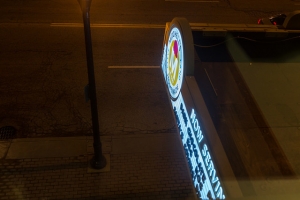Support migrant centric journalism today and donate

Questions on the nation's citizenship test will be revised to focus on basic civics and won't be the sort that would stir academic debate, the head of the federal citizenship office said Dec. 6.
Alfonso Aguilar, chief of the U.S. Office of Citizenship, said the agency plans to have a study done by next month on whether the test must be redesigned or merely revised. He said that although nothing is definite yet, "We are inclined to revise the current test, rather than totally redesign the test."
The changes should be completed by January 2007 and in use by January 2008, Aguilar said.
The test won't delve into topics such as how the Second Amendment of the Constitution affects gun laws or who were the original Americans. Instead it will "go to the basics of civics" such as freedom of expression, said Aguilar, whose bureau is part of Citizenship and Immigration Services in the Homeland Security Department.
"They are going to go to the fundamentals that unite us," he said.
Revision of the test that newcomers take to become Americans was first suggested in the late 1990s by an immigration panel initially led by the late Texas Rep. Barbara Jordan. The Bush administration began working on the changes in 2001, but had to scrap its first effort amid concerns about how the test was developed.
Since then, the director of the test development project has been changed and the agency plans to put out bids soon for a new contractor to help in developing the test.
The department is trying to avoid the conflicts that hobbled the effort to revise the oath of citizenship in 2003. That effort failed after conflicts erupted over whether the new oath should include references to bearing arms and whether the public had enough opportunity to offer its views on the matter.
While American civics could prompt many interesting debates, "Citizenship and Immigration Services is not an academic forum to have those interesting discussions," Aguilar said.
The department wants the test to be less subjective. Permanent residents wanting to be Americans are tested on their ability to read, write and speak English, as well as their knowledge of U.S. history and government. They are asked questions from an approved list, but each testing officer can decide which questions to ask.
As a result, the test varies depending on who is asking the questions and where the test is given.
Aguilar said the test will not be in the format of the SAT and will not necessarily be harder than the existing test that is being revised.
Instead he said it will aim to ask more substantive questions and anyone who studies for the test should be able to pass it.
In addition to asking who wrote the Declaration of Independence, the test could ask the applicant to name one of the fundamental components of the document. Possible answers could be that the Declaration of Independence established America as an independent country, set out the fundamental rights of its citizens or established that the country is governed by the people, Aguilar said.
He estimated that the agency will spend $6.5 million on the effort to redesign the test, including the $4.5 million spent thus far, including on the previous effort.





















